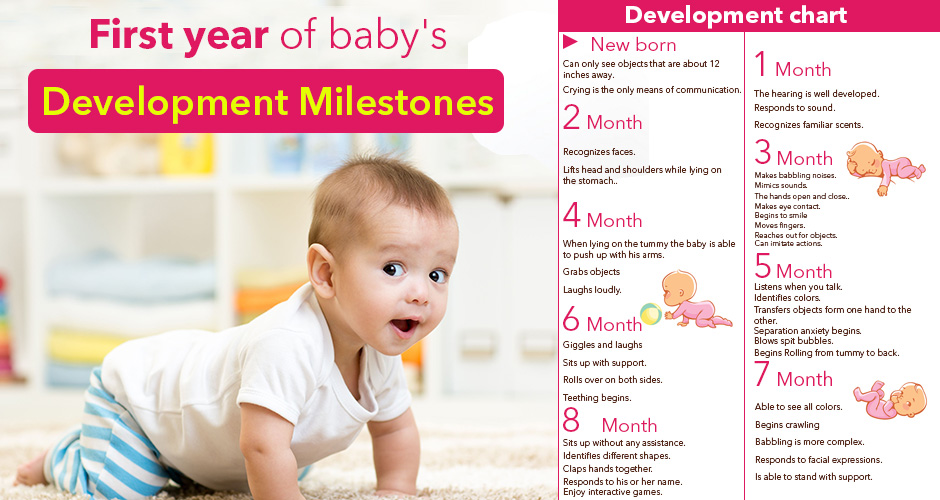
As a parent, you might be wondering what to expect from your one-year-old baby’s development. At this age, your little one is growing and changing at a rapid pace, and it’s essential to know what milestones to look out for.
Table of Contents
Physical Development

By the time your baby is one year old, they should have reached various physical milestones, such as sitting unaided, crawling, and maybe even taking their first steps. They may also be able to pick up small objects using their thumb and forefinger, known as the pincer grasp.
At this age, your baby’s gross motor skills should also be developing, and they may enjoy playing with balls or other toys that encourage movement. You may notice that they are starting to climb stairs, but always supervise them closely to prevent any accidents.
Cognitive Development

One-year-olds are curious about the world around them and are starting to understand cause and effect. They may enjoy playing with toys that make noise or have bright colors, and they may also begin to imitate your actions and gestures.
Your baby’s language development may also be advancing at this age, and they may start saying their first words, such as “mama” or “dada.” They may also understand simple commands, such as “come here” or “give me the ball.”
Emotional Development

Your one-year-old baby’s emotional development is just as important as their physical and cognitive development. At this age, they may experience a range of emotions, from happiness and excitement to frustration and anger.
Your baby may also start to show signs of separation anxiety and may become upset when you leave the room. It’s essential to reassure them and let them know that you will always return.
Social Development

As your baby grows and develops, they will become more interested in interacting with others. They may start to play alongside other children, although they may not yet be able to share their toys or take turns.
You can encourage your baby’s social development by arranging playdates with other children their age and taking them to playgroups or other activities where they can interact with others.
Nutrition and Sleep

By the time your baby is one year old, they should be eating a variety of solid foods in addition to breast milk or formula. It’s essential to offer a balanced diet that includes plenty of fruits, vegetables, and protein.
Your baby may also be transitioning from two naps a day to one nap, and they should be sleeping for around 11-14 hours a day, including naps.
Conclusion
Your one-year-old baby is growing and changing every day, and it’s essential to keep track of their development and encourage them to reach their milestones. By providing a safe and stimulating environment, a balanced diet, and plenty of love and attention, you can help your baby thrive.
Frequently Asked Questions
Q: When should my baby start walking?
A: Most babies take their first steps between 9 and 12 months, but it’s entirely normal for some babies to wait until they are 18 months old or even later.
Q: How many words should my one-year-old be saying?
A: Every child is different, but most one-year-olds can say a few words, such as “mama” or “dada.” If you have concerns about your baby’s language development, speak to their pediatrician.
Q: How much milk does my one-year-old need?
A: By the time your baby is one year old, they no longer need formula or breast milk as their primary source of nutrition. Instead, offer them a variety of solid foods and encourage them to drink water throughout the day.
Q: How much should my one-year-old be sleeping?
A: Most one-year-olds need around 11-14 hours of sleep a day, including naps. However, every child is different, and some may need more or less sleep.
Q: How can I encourage my baby’s development?
A: There are many ways to encourage your baby’s development, such as providing plenty of opportunities for play, reading to them, and offering a variety of healthy foods. It’s also essential to create a safe and loving environment where your baby feels secure.
